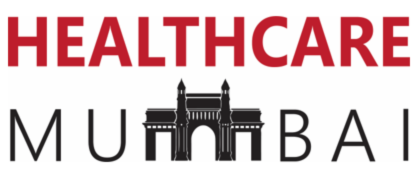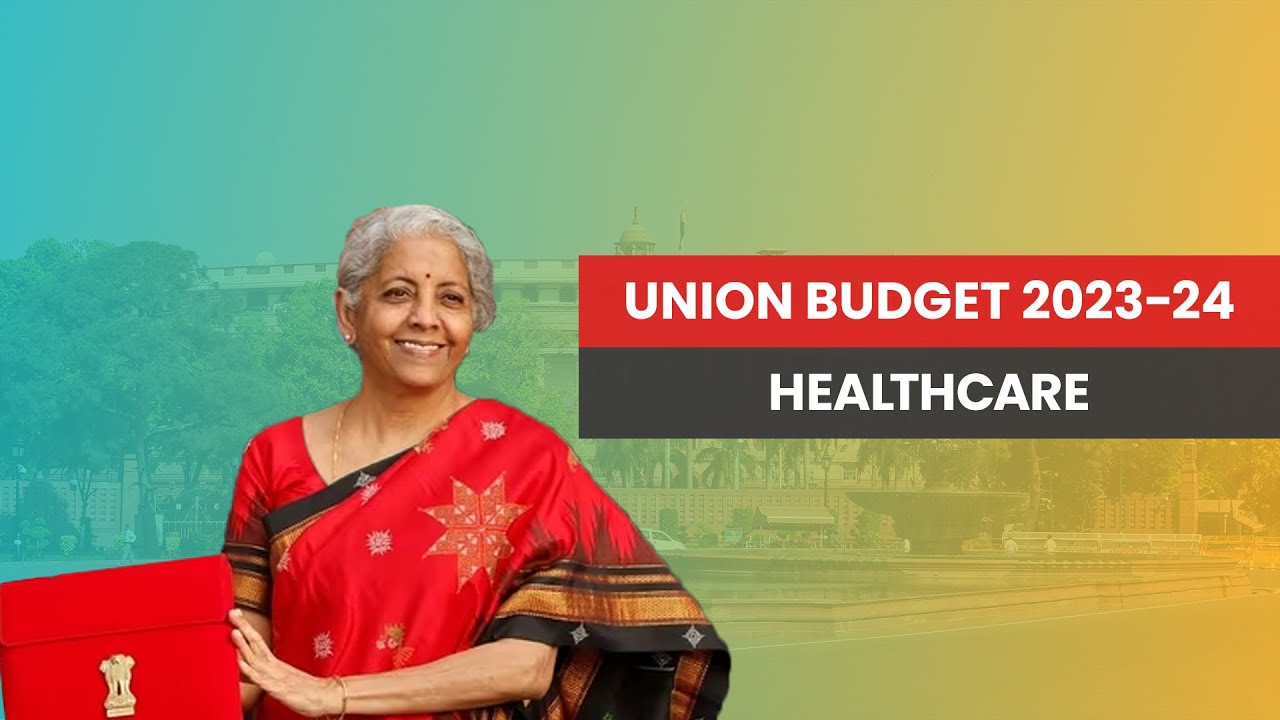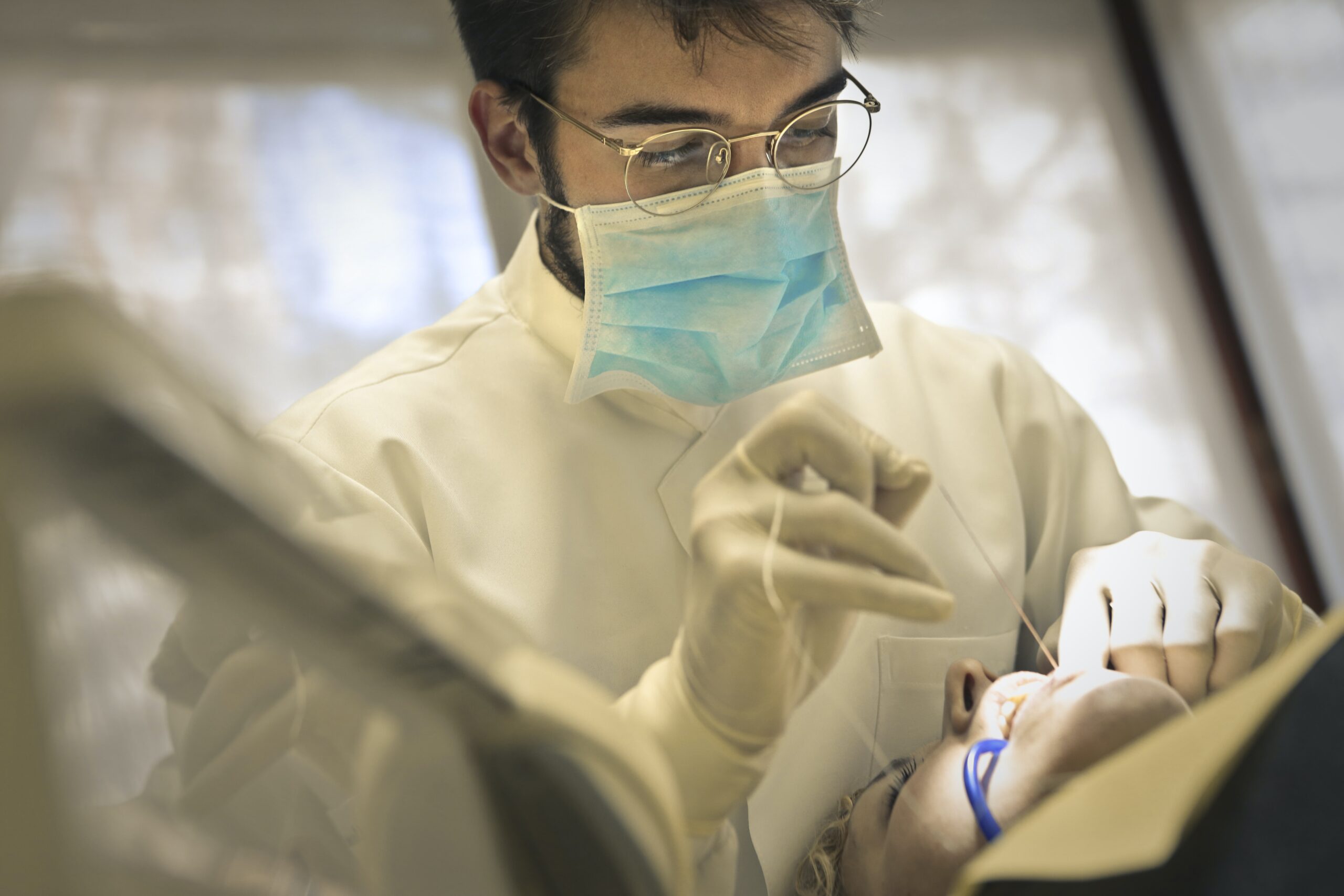The Union Budget 2023-24 was presented by Finance Minister Nirmala Sitharaman on February 1, 2023. The government has described this budget as the first of “Amrit Kaal”, which pave the way for India to achieve Prime Minister Narendra Modi’s vision to make India a developed country in the next 25 years.
The Government has announced that it will support the development of dedicated multidisciplinary courses for medical devices in existing institutions. The courses will be developed by the National Technical Institute for the Management of Health (NTIMH) under the Ministry of Health. The program is expected to train around 1,600 students annually, who would be employed as junior staff at hospitals, clinics and other health facilities. The Minister also announced that 157 new nursing colleges will be established in core locations with the existing 157 medical colleges established since 2014.
The government has allocated Rs 2,934 crore for AYUSH Ministry in 2023-24. This is an increase of 10 per cent over allocation of Rs 2,686 crore in 2022-23. The government has earmarked Rs 62,000 crore for National Health Mission (NHM), which is an increase of 4 per cent over last year’s allocation of Rs 59,000 crore.
The health sector has been allocated Rs 89,155 crore in Union Budget 2019-20, which is a hike of around 13 per cent over Rs 79,145 crore allocated in 2022-23. This includes an allocation of Rs 622 crore for Ayush Ministry under Integrated Child Development Services (ICDS).
Out of this amount, Rs 86,175 crore has been allocated to Department of Health and Family Welfare (MoHFW), while Rs 2,980 crore to the Department of Health Research.
Here is how the healthcare industry reacted to the budget presented for the year.
Mr. Chushul Suri, Founder & CEO, Medbikri
“So its always good that the centre is looking towards the Healthcare Industry, as it in dire need of investments. More R&D in Pharmaceuticals will leads to us becoming self sufficient and a powerhouse in Pharma Manufacturing, just need to ensure we reduce dependency of APIs as well from other countries. Promotion of AI is also a good inititative as it will lead to our home grown talent solving Indian problems like Health & Agriculture, rather than taking their talents abroad. Overall steps in the right direction!”
Ms. Sandhya J, Group Chief Financial Officer (CFO), Narayana Health
Despite global headwinds, impending recession, funding winter and moderate pick-up of businesses from Covid-19 impact, it is encouraging to see Indian economy gunning for a 7% growth this year, which is highest amongst the major economies. From healthcare perspective, there were few hits and misses. R&D in healthcare is a critical aspect for future preparedness and encouraging medical research and innovation in pharma is a much-needed move for the larger ecosystem. Dedicated investment towards nursing colleges will help our country fill the gap of nurses per patient ratio as per WHO standards. According to 2019 Data by Ministry of Health and Family Welfare, India had only 1.7 nurses for every thousand people as compared to three nurses per thousand people requirement. Covid-19 years have increased this gap even more and it is same for doctors and other paramedic staffs. Therefore, dedicated efforts are required to train more medical professional for the growing need of the country. It is also commendable that the Government is looking to eradicate sickle cell disease. Further, increased allocation to National Digital health mission is a step in the right direction.
While R&D got some attention, we expected the budget to increase healthcare expenditure from 1.5% to 2% – 2.5% with dedicated focus towards primary and secondary care. While 157 medical colleges have been established since 2014, we are still have far less doctors than we need and the country needs significant reforms in improving the accessibility and availability of medical education. And finally, we were hoping for some relief on the burden of GST.
Even though, there aren’t any significant measures for the health care segment, in general, we are pleased with the continued focus on growth and resilience for the country. Especially the strong impetus to job creation, opportunities for citizens, especially youth, and empowerment of women. With the G20 Presidency, we are uniquely placed to set a role model for the world economic order and the budget surely hits the right notes.
Dr. Naoya Matsumi, DMD Sakra World Hospital Bengaluru
The “Amrit Kaal” Union Budget 2023 has significantly prioritized on improving the infrastructure of healthcare sector in our country. The Government’s decision to set up 157 nursing colleges in addition to the already existing 157 ones, ramp up facilities in select ICMR Labs for increased R&D, promote new program to encourage collaborative research and innovation in pharmaceuticals will definitely benefit the overall growth of the industry. Launching a dedicated mission to eliminate Sickle Cell Anemia disease by 2047 through awareness creation and universal screening of seven crore people in 0-40 age group in the tribal areas is appreciated and will help in tackling the endemic witnessed amongst the tribal population. However, the Govt. should have also focused on substantial budgetary allocation for preventive and mental health, and metabolic diseases that continues to grapple the younger population, making quality healthcare further accessible in the rural areas to bring down the modern-day healthcare risk factors.
Mr. Raj Gore, CEO, Healthcare Global Enterprises Limited
We welcome the union budget announced by the Finance Minister. It prioritizes enhancing the nation’s healthcare system and is pro-growth. The decision to establish 157 nursing colleges in addition to the ones that already exist will aid in fulfilling the ever-growing need for nursing care in the country. Further, improving the R&D capabilities in some ICMR labs, and supporting new initiatives for collaborative research, and innovation in the pharmaceutical industry will undoubtedly aid in the growth of the industry as a whole. Moreover, in terms of improving the skill sets of people in the healthcare sector, we believe that the introduction of dedicated multidisciplinary courses on medical devices will ensure the availability of skilled manpower for advanced and futuristic medical technologies.
However, we believe that the government should have allocated significantly higher budget for healthcare: especially for preventive healthcare, cancer care, infrastructure and making quality healthcare more accessible in rural areas
Mr. Vijay Kyal, Managing Director, Pii Pharma – Pharmaceutical Institute of India Pvt. Ltd
We are pleased to see that the 2023 budget has announced an increase in funding for research in the healthcare sector, including pharmaceuticals, clinical research, and public-private partnerships. The government’s efforts to promote research and development in healthcare is a much-needed step. The establishment of research and innovation centers and the provision of select ICMR labs for use by both public and private medical college faculty and the private sector is commendable. The addition of more nursing colleges will help meet the yearly demand for a sufficient nursing workforce. The inclusion of courses for medical devices will address a major gap in the industry. Overall it’s a well-balanced budget for everyone.
Mr. Girish Arora, Founder & MD – Alniche Lifesciences
“Healthcare sector has been a major focus of the government in recent years, with increasing allocations in the previous budgets. Budget 2023 will provide a roadmap for the government’s plans to improve the overall healthcare system in India. The rise in funding for research and development in the healthcare sector will help research on diseases, as well as for the development of new drugs and treatments. The focus on expanding healthcare services through the implementation of a universal healthcare coverage system will help provide access to affordable and quality healthcare services to all citizens, regardless of their socio-economic status. This year’s budget will improve healthcare infrastructure, strengthen the public healthcare system, promote research and development, expand coverage of healthcare services, and promote the use of technology to improve the overall healthcare system in India. With these initiatives, the healthcare sector will see a positive impact, leading to a healthier and more productive population.”
Mr. Raktim Chattopadhyay, Founder & CEO, Esperer Nutrition Group
The budget 23-24 expressed by Ms Sitaraman is no doubt a sign that the Indian economy is moving towards a bright future. I think the budget has the right balance from education to health to agriculture to rural development, it all as expected like a common man’s budget . Significant increase over capital expenditure is going to add value in growing Indian GDP. The budget has rightly focused on controlling inflation and generating jobs. And as per me this budget is an immediate relief to the people.
Dilip Jose, MD & CEO, Manipal Health Enterprises
“It is a progressive budget with a focus on infrastructure development, which should in turn spur job creation. The steps to encourage environment-friendly consumption and businesses are very welcome too. The budget is also mindful of the expectations of the youth and the middle class.”
Gaurav Dubey, Founder & CEO, LivLong
“As our nation is at the forefront of healthcare services, the budget for the fiscal year 2023 has created ample opportunities for the health sector. In terms of escalating the quality of healthcare services, the stride to build 157 additional nursing colleges alongside the 157 existing medical institutions since 2015 is commendable. This will prove to be a beneficial step for the further advancement of homecare services, which will become a mainstay of the clinical protocol. Therefore, the demand for medical consulting services will increase, and more experienced and qualified personnel will enter the industry. Furthermore, 5G-empowered healthcare apps will be developed by the engineering institute, as 5G will enhance telehealth services significantly. Hence, medical professionals will be able to treat patients more effectively in real-time and will reach rural regions promptly due to improved communication. The aforementioned steps will ultimately lead to an improvement in healthcare services.
Hari Subramaniam, Founder & Director, LifeSigns
“The budget for 2023–24 is a significant step forward for the health-tech sector. With a focus on strengthening the research infrastructure and investment in digitalization through 5G, it sets a positive trajectory for companies like ours. The establishment of new nursing colleges and the allocation of resources for medical research and pharmaceutical innovation demonstrate a commitment to improving healthcare access and outcomes.
Harsimarbir Singh, Co-founder, Pristyn Care
“The Budget, presented by Finance Minister Nirmala Sitharaman, is well-balanced, progressive and development-oriented. Along with many necessary changes that have been put in motion, the steps to enhance ease of doing business, such as reducing 39,000 compliances and decriminalizing 3,400 legal provisions, is a welcome step. Acknowledging start-ups as drivers for the Indian economy’s growth, the finance minister has also extended the existing tax benefits for such businesses by one more year till March 31, 2024. Healthcare services by the small & medium sector are yet to bounce back, and the Finance Minister’s announcement of revamped Credit guarantee scheme, allocation of Rs 9,000 crore and reduced credit cost is sure to boost the sector to revive quickly.
Kamal Narayan Omer, CEO, IHW Council
“With the Union Budget 2023-24, focusing on accessible, affordable and inclusive health care for all along with emphasis on health infrastructure and better R&D for innovations and developments in healthcare, Budget 2023-24 is going to accelerate India’s progression towards SDG’s while ensuring that no one is left behind, thus facilitating the building of a Swasth and Ayushman Bharat.
Dr Kanury Rao, Co-founder and CSO, PredOmix
“We applaud the announcement of the establishment of centres of excellence for AI in prestigious institutions, which will aid in the creation of ground-breaking applications and scalable solutions to challenges in the field of health. The introduction of a new course will aid medical students in learning about medical devices and provide them with new career opportunities. Furthermore, we anticipate additional investment in the healthcare sector as a result of the expansion of ICMR labs in India.
Dr Kshitiz Murdia – CEO & Co-Founder, Indira IVF
“The health budget this year has focused on a few niche however, crucial areas of healthcare. This has brought to the forefront increasing access to training, addressing the challenges associated with sickle-cell anaemia, encouraging public-private partnership, and futuristic developments in medical technology, especially of that in artificial intelligence.
The incorporation of 157 new nursing colleges will help in skilled manpower required for better healthcare delivery. The COVID-19 pandemic has proven the indispensability of trained medical professionals who can take care of patients from the frontline; this initiative makes us future-ready for similar situations.
Mandeep Singh Kumar, Vice-President and Country GM, Intuitive India
“With the economy expected to grow at 7% this year, the budget has adequately focused on the upskilling of the healthcare professionals in the country through opening of nursing schools and encouraging clinical research. Post the pandemic, we have witnessed a rise in the need for quality care, and the Union Budget of 2023 has slowly but surely paved the way for the same. With the need for accelerated adoption of new-age technologies like robotic-assisted surgery in the country, I am glad that emphasis is being laid on multidisciplinary courses for medical devices. This will ensure the availability of skilled manpower for enabling application of futuristic medical technologies, high-end manufacturing, and research.”
Manoj Saxena, Managing Director, Bayer Zydus Pharma
“A new program to promote pharmaceutical research & development (R&D) will help spur investment in innovations that can address areas of high disease burden and unmet health needs in India. This is a long-awaited move, and we hope such a program will provide sustained incentives for investment so that the Indian pharmaceutical industry becomes a global hub for both discovery and development work.
Dr Minnie Bodhanwala, CEO, Wadia Hospitals
“The budget keeps us on track while providing universal access to health facilities. The rollout for screening for Sickel Cell anaemia of 7 crore people in the 0-40 years age group in affected tribal areas is a good move. The fact that this rare disease found a place in the budget is a testament to show that the government is on a mission to eradicate the disease and make access to quality healthcare services a reality for India. It also makes me happy from the bottom of my heart to know that more than 220 crores of COVID-19 vaccines for 102 crore people were administered. This will in turn be invaluable in strengthening our fight against non-communicable diseases. In addition to that the effort to increase skilled healthcare personnel by establishing 157 new nursing colleges in core locations gives hope for manpower growth in the healthcare sector of India. At Wadia Hospitals, we look forward to contributing to the success of these path-breaking initiatives. Overall, a very well thought out budget that has heard our voices and needs of the healthcare sector of the country.”
Mugdha Pradhan, CEO and Founder, iThrive
“Popularising millets is just going to make an already protein deprived nation even more malnourished. Maybe next time they can shift the focus to eggs, meat and ghee as these are nutritious foods that really bring health into human beings. That apart, we are expecting the Government to consider lowering taxes applied on the wellness industry to align with their new Agenda of Healthy India.”
Dr Om Manchanda, Managing Director, Dr Lal PathLabs
“We compliment the Finance Minister for announcing the establishment of 157 new nursing colleges in her budget speech. Nurses are the backbone of healthcare delivery infrastructure as was evident during the COVID-19 pandemic. New nursing colleges would go a long way in bridging our patient-to-nurse ratio. The decision to make facilities in select ICMR labs for research by public and private medical facilities will be a boon to the healthcare research and advancements.





